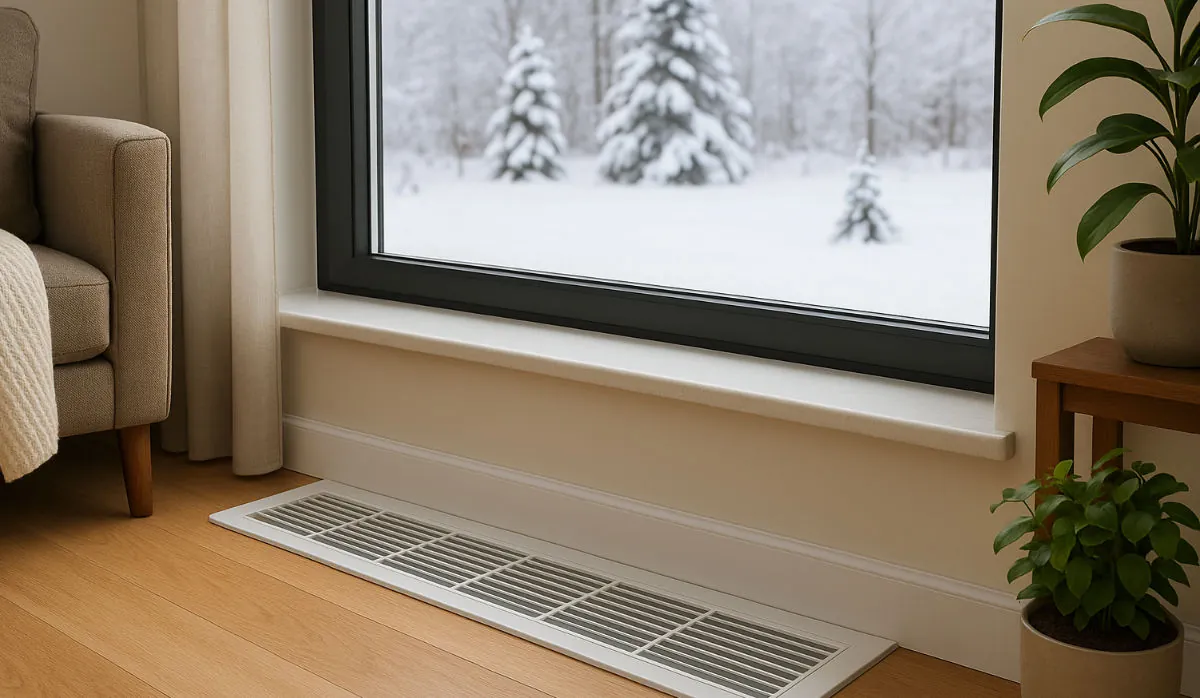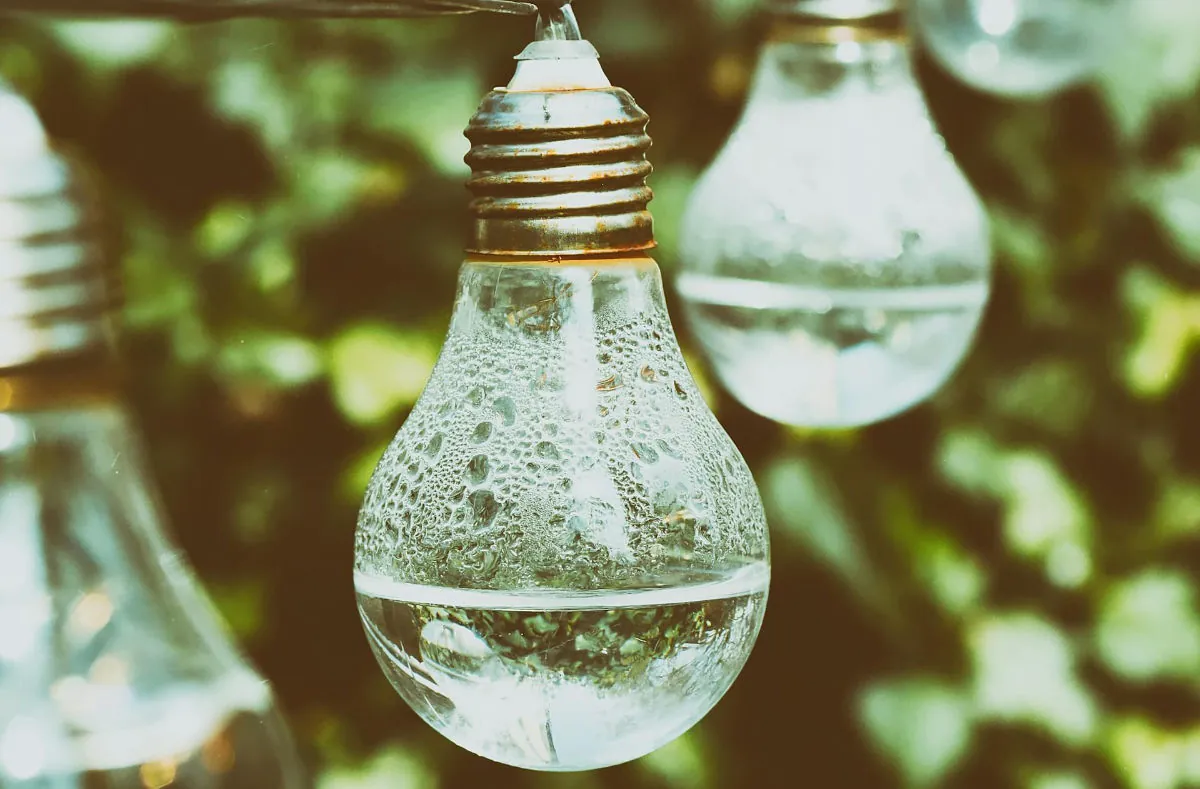Ahhh the shower - that blissful, steamy sanctuary where you can let the worries of the day melt away. At least until the hot water unexpectedly runs out, forcing you into a frantic, shivering dance as freezing streams assault your body. There's nothing quite like having your relaxing rinse rudely interrupted by a cold water torture session to really kill the vibe.
Whether it's after just a few minutes or a slightly more merciful 10-15 minutes, having the hot water suddenly disappear is a morning misery we've all experienced. One minute you're zoning out under the soothing streams, the next you're flinching and contorting like you insulted the shower gods. Not exactly the spa-like experience you envisioned.
If this untimely cold water ambush has become a frequent issue, it's time to do some sleuthing to find the culprit behind your shower's traitorous behavior. From problems with the water heater itself to plumbing quirks or simply your own hot water hogging habits, there are several potential explanations for the premature cool down. Let's dive into some likely reasons why your shower can't keep its cool.
Water Heater Issues
If your shower is going from piping hot to ice cold in a matter of minutes, one of the first places to direct some side-eye is your home's water heater itself. As the big kahuna supplying all that glorious hot water, any shenanigans with this appliance can quickly trigger those frigid shower surprises.
Insufficient Water Heater Capacity
Let's start with a case of simple under-sizing. If your water heater's tank capacity is too small for your household's daily hot water needs, it's going to struggle keeping up with demand.
Telltale signs you've got an inadequate water heater include running out of hot water during showers, doing laundry, and washing dishes all in one morning. If you've got a larger household all trying to get clean at the same time, even a few back-to-back showers could be enough to overtax that puny water heater into giving out early.
Sediment Buildup
Even a properly-sized water heater can start underperforming if it gets clogged up with a bunch of gunk and sediment over time. As water heaters age, they can accumulate all sorts of funky mineral buildup and deposits that insulate the tank and make it harder to fully heat the water.
If you haven't drained and flushed your water heater in a while, it could basically be operating with a thick chunky sweater. Not exactly ideal for heating water efficiently! Staying on top of regular flushing and deliming can help keep things flowing smoothly.
Faulty Thermostat or Heating Element
Of course, there could also be some malfunctioning components causing your water heater to pull up lame. A broken thermostat that's not properly regulating temperatures or a burned-out heating element that's struggling to provide enough hot water are both common culprits.
If the tank itself is getting too hot and activating the pressure relief valve, or you're getting inconsistent water temperatures out of different taps, chances are one of those internal pieces is on its way out. Time for a tune-up or replacement before your shower situation goes from mildly annoying to fully Arctic!
So whether your water heater is just too tiny, clogged up with sediment, or suffering some mechanical issues, don't be surprised if those problems start manifesting as premature cold showers. Getting that hot water supply back on track should hopefully keep you from going into hypothermic shock mid-lather.
Plumbing System Problems
But what if your water heater checks out just fine? Well, the plumbing system itself could be the real shower saboteur here. Those pipes and fittings play a crucial role in actually getting the hot water to your shower in a timely manner. If there are any hiccups along that delivery route, you're going to feel it in the form of lukewarm disappointment raining down on you.
Pipe Insulation Issues
You know those big puffy sleeves wrapped around some of your home's pipes? That insulation isn't just for looks - it actually serves an important purpose in keeping hot water from cooling off too quickly as it travels through the plumbing system.
If that insulation gets damaged, deteriorates, or was just installed poorly, it can't do its job of maintaining those nice toasty temperatures all the way to the shower. By the time the hot water arrives, it's already gone partially cold. Cue those dreaded icy stream surprises halfway through your rinse cycle.
Leaks or Clogs in the Plumbing
Another potential hot water flow disruptor could be leaks or clogs somewhere in the plumbing pipes and fittings themselves. Cracks, loose connections, or mineral buildup can restrict water flow and pressure on its way to the shower. The less volume that can make it through, the quicker you're going to run out of that hot water supply.
While a pinhole pipe leak might seem minor, it could be slowing your shower's hot water delivery to an absolute trickle. Or that mineral clog might be choking things down so much that your shower mix quickly gets overwhelmed by the cold water still flowing at full blast. Either way, you're going to feel those temperature repercussions.
Cross-Connection or Backflow Issues
In some cases, your plumbing system might actually be accidentally introducing cold water into the hot supply through a faulty cross-connection or backflow issue. These are when the hot and cold water lines get improperly linked up somewhere, causing an unwanted merger that rapidly cools down the hot side.
While these types of plumbing problems are rare, they can absolutely manifest as wildly fluctuating shower temperatures or the hot water supply getting overwhelmed by the cold influx. If you've got a cross-connection somewhere, it's essentially like leaving your shower's cold tap wide open while the hot is running.
So before you immediately blame your water heater for running out of steam, make sure there isn't something awry in the plumbing system itself that's sabotaging your shower's hot water delivery. Those pipes and insulation play a bigger role than you might think in keeping things toasty all the way to the stream!
Water Usage Habits
But what if both your water heater and plumbing system appear to be in tip-top shape? In that case, you might just need to point the finger right back at yourself and your own hot water-guzzling habits. Our daily shower routines and overall water consumption patterns can have a huge impact on how quickly that hot water supply gets drained.
Multiple Simultaneous Water Usage
Having the shower running is already a huge drain on your home's hot water tank. But if you've also got other hot water-devouring appliances and fixtures running at the same time, you're essentially asking for trouble.
Running that dishwasher or washing machine while someone's trying to shower is a classic case of extreme multi-tasking. All those competing demands for hot water can easily overtax even the largest tank into submission. Next thing you know, you're unexpectedly taking an ice bath as all the hot water gets redistributed elsewhere.
Long Shower Duration
Of course, a big part of the problem could simply be your own dawdling. The longer you spend luxuriating under those soothing streams, the quicker you're going to burn through that finite hot water supply.
While a nice long shower can be heavenly, realistically most water heater tanks just aren't sized for those marathon 30+ minute sessions. If you're one of those shower philosophers who loves taking their sweet time, you're just begging for that water to start going Antarctic on you before you've even finished rinsing the shampoo out.
High Water Flow Rate
Another potential issue could simply be the shower itself flowing at too high a rate. With those high-pressure, rainfall-style shower heads becoming increasingly popular nowadays, you could be guzzling hot water way faster than previous generations of shower systems.
While those high-flow models certainly feel luxurious, they can drain even large water heater tanks in a hurry if you're not careful. You might need to adjust that shower head down to a more reasonable flow rate if you want to extend your hot water longevity. Otherwise, be prepared for a shockingly cold wake-up call just a few minutes in.
So before blaming your plumbing or water heater, take a good hard look at your own shower habits and overall household's hot water consumption. Making some simple adjustments to your routine could be all it takes to keep that shower from going prematurely polar on you. A little restraint goes a long way!
Solutions and Recommendations
Alright, so we've covered all the potential hot water heater hijinks, plumbing problems, and personal habit hijinks that could be turning your luxurious shower into a Shamu show. Time to get into some actual solutions for getting that water temperature back on track and keeping it there!
Upgrading or Replacing the Water Heater
If your water heater itself is the core issue, whether due to being undersized, excessive sediment buildup, or just plain old age, it might be time to bite the bullet and go tank shopping. Replacing that old hot water maker with a shiny new model can often be the simplest fix.
When choosing a new water heater, make sure you do your homework to get one properly sized for your household's daily hot water demands. An upgrade to a larger tank capacity could be the hot water longevity boost you need. You'll also want to consider other efficiency and longevity factors like heat pump or tankless models to maximize your investment.
Improving Insulation and Plumbing Maintenance
If your water heater checks out but the plumbing itself is the problem, it's time to bring in some professional backup. Having an expert plumber check for any leaks, clogs, or improper pipe insulation can get to the root of any hot water delivery issues.
Depending on what they find, you might just need some new insulation installed or repiping in certain problem areas. Or if things are really gnarly, a more extensive replumbing might be in order. While not a cheap fix, clearing those pipe obstructions can work wonders for keeping hot water flowing consistently.
Adjusting Water Usage Habits
Of course, sometimes the simplest solution is just to adjust our own hot water consumption habits. If your showers are the main issue, it might be time to start embracing the power of a low-flow shower head and limiting those marathon lathering sessions.
You'd be surprised how much of a difference those little changes can make in extending your hot water supply. Simple tricks like shortening showers to under 10 minutes, spacing out other hot water appliance usage, and turning down those flow rates can all help keep you from getting blindsided by cold shocks.
At the end of the day, hot water is a limited resource in most households. Making a few minor adjustments to how we use it can go a long way in ensuring it doesn't run out before you've had a chance to fully enjoy it. Who doesn't want to avoid those bone-chilling mid-shower surprises?
The Hot Water Struggle is Real
There are few things that can ruin your morning faster than an unexpected icy blast hitting you mid-shower. One minute you're relaxing under the soothing streams, the next you're violently shivering and trying not to slip as the freezing water shocks your system. Going from heavenly warmth to arctic torture is a real mood killer.
Whether the hot water woes are due to an aging water heater, hidden plumbing issues, or just bad shower habits, it's a struggle we've all faced at one point or another. But don't resign yourself to a lifetime of disappointing cold showers just yet. Some basic troubleshooting and adjustments can hopefully get that water temperature back under control.
If you've tried every DIY trick you can think of and still can't seem to stop the cold water invasion, it's probably time to call in the experts. Our team at Sunset Heating, Plumbing & Electrical specializes in diagnosing and repairing all kinds of water heater and plumbing system problems that disrupt your shower flow.
Don't keep subjecting yourself to that icy misery - give our hot water pros a call at (503) 500-5866 to finally get lasting hot shower bliss!






